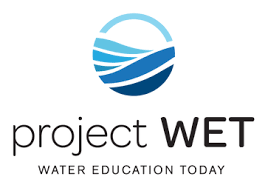As lake leaders you know that the threats to our lakes, and MN’s lake heritage, are mounting. In 2020 the MPCA, after extensive testing, listed 56% of Minnesota’s lakes as impaired. This year they added another 305 water bodies to the list. Agricultural runoff, industrial pollution, salt from our roads, phosphorus from lakeshore management, are all accelerating.
About forty years ago the Chesapeake Bay, the nation’s largest estuary, was a biological dead zone from pollution much like the Gulf of Mexico is today. The states bordering Chesapeake Bay pulled together to implement programs to save the Chesapeake.
In 2019 scientists reported that the Chesapeake is the healthiest it has been in 33 years. Blue crab, striped bass and anchovy, the foundation of their fishing industry, have recovered. The water quality, once some of the worst in the country, is improving even as water quality in Minnesota declines.
One of the first and most successful strategies used to restore the Chesapeake was a structured aquatic science curriculum of all students living in the Chesapeake Bay watershed.
As these children grew, they not only entered resource management careers, but supported public policy, investments, zoning and regulations that protected Chesapeake Bay. They served on committees, boards and ran businesses, and valued clean water.
Today, while there is still progress to be made, pods of dolphins are seen regularly in the bay, commercial fishing has returned as have sensitive sea grasses.
A structured aquatic educational program for all of Minnesota’s school children will be necessary to reversing the disturbing water quality trends we see in Minnesota today.
Project Wet is a detailed training that will provide curriculum for any situation; for teachers in a classroom, for a lake advocate at a lake association meeting, for a volunteer at a street fair or festival booth, at a presentation for a group like 4-H, scouts, summer camp, resort or campground, nature center, or a school club.
Lake Associations know that the first, and perhaps one of the most useful, efforts they undertake to protect the lakes they love is education. Much of this focuses on posters, flyers, even restaurant placemats as well as media stories.
These are a great start, but they are all passive and success is measured in “number of impressions.” Project WET is a highly structured curriculum of engaging lessons suitable to a variety of situations from classroom to sidewalk to boardroom to lakeshore that will provide experiences for learners.
But to access these materials, you must take a short online course, receive an access code from Janine Kohn, MN’s state Project Wet coordinator. Janine, a long time teacher, will remain available to you to provide support, suggestions and in-person workshops.
Watch the video to learn more. Once you are certified as a Project WET educator, you will have access and support to lead lessons about local water issues within your community.
In this hour long webinar, Janine Kohn will lead you through the Project WET program, and international water education organization that provides water-based curriculum and activities for many different audiences, from school kids to lake association members to the Kiwanis Club, and venues from classroom to board room to street fair or scout meeting. Click here to view this webinar and become a Project WET educator:
In this hour long webinar, Janine Kohn will lead you through the Project WET program, and international water education organization that provides water-based curriculum and activities for many different audiences, from school kids to lake association members to the Kiwanis Club, and venues from classroom to board room to street fair or scout meeting. Click here to view this webinar and become a Project WET educator:
In this hour long webinar, Janine Kohn will lead you through the Project WET program, and international water education organization that provides water-based curriculum and activities for many different audiences, from school kids to lake association members to the Kiwanis Club, and venues from classroom to board room to street fair or scout meeting. View this webinar and become a Project WET educator:

